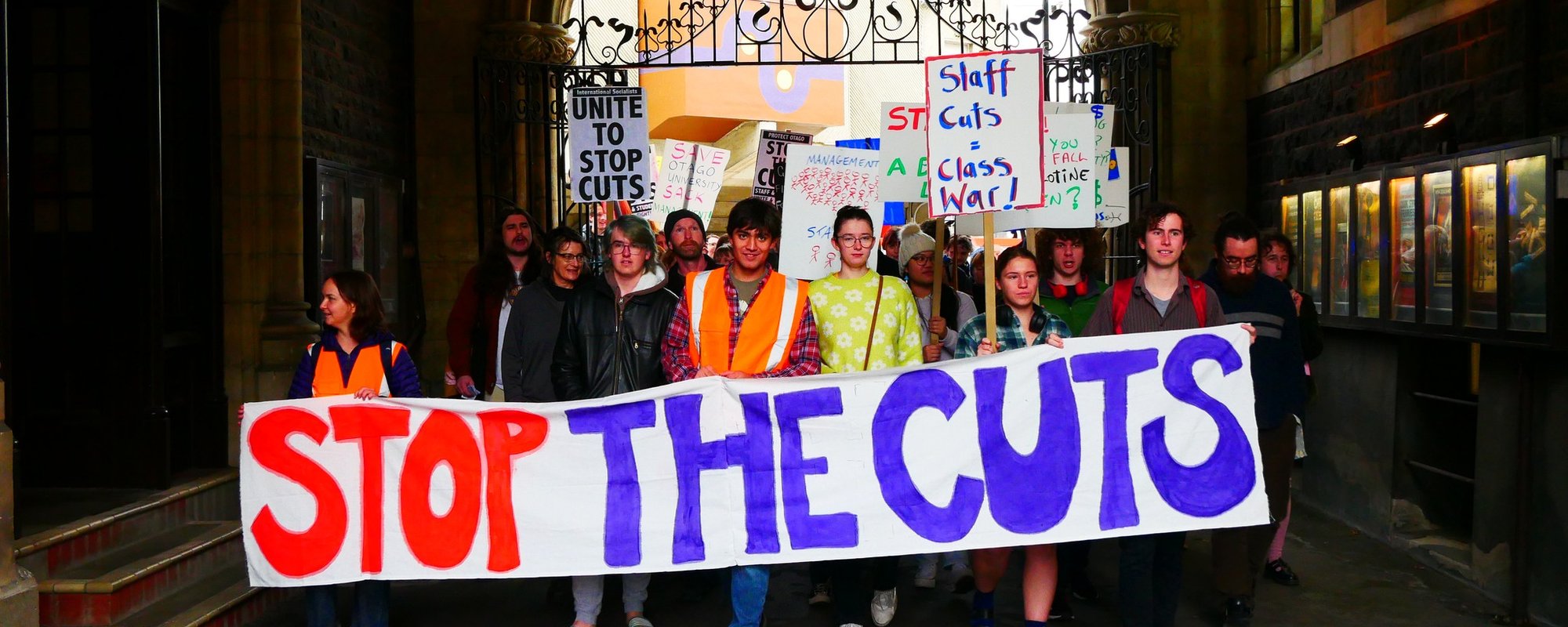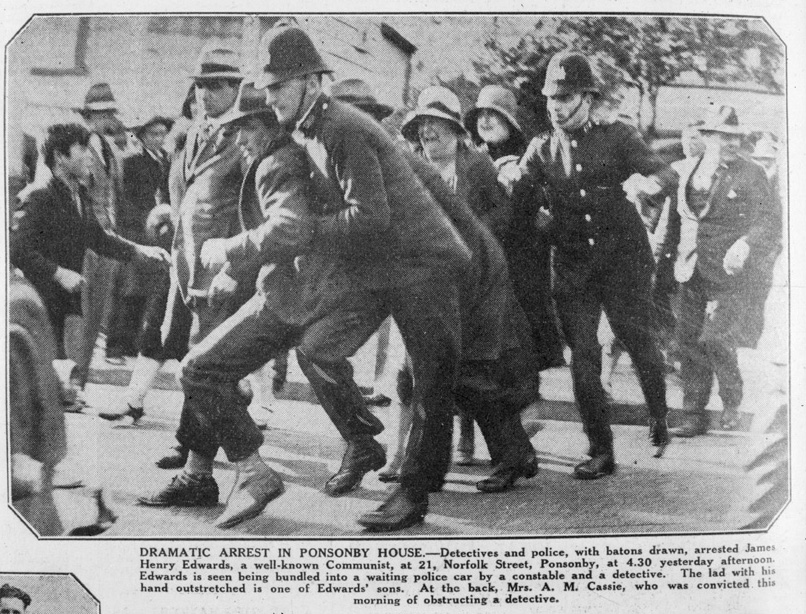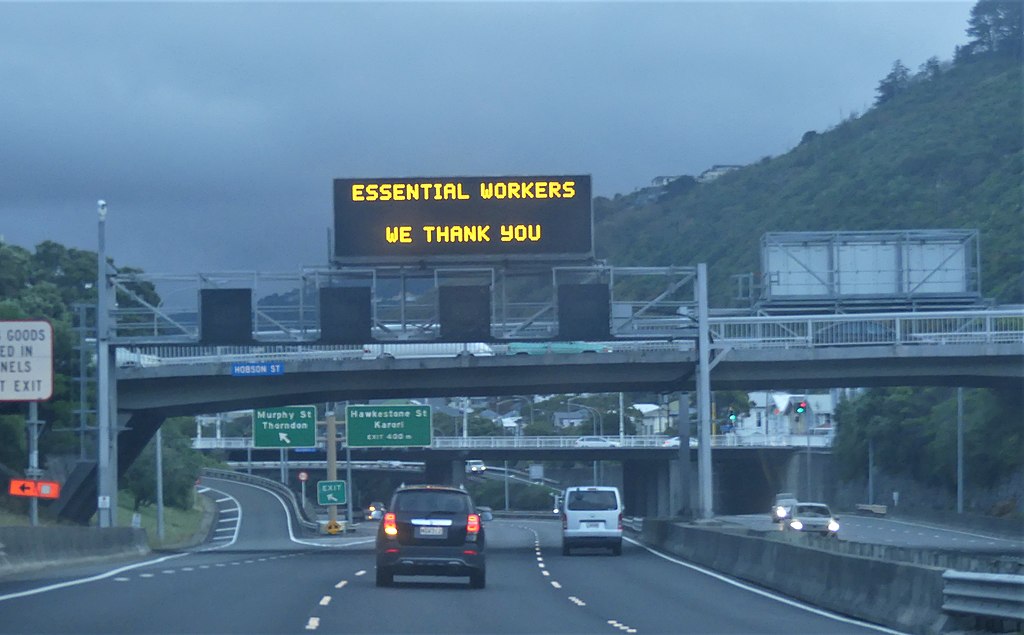Shomi Yoon gave this talk to a national meeting of the International Socialists discussing our organisation’s response to this emergency on April 3.
At this stage, we’ve had one person pass from Covid-19 in New Zealand. The number of confirmed and probable cases is 868.Community transmission remains minimal at 1%. We won’t know whether the Government’s lock down has had the effect of ‘flattening the curve’ yet.
As socialists, we’re for public health. We don’t want the virus to spread. This is basic but needs spelling out. Locking-down, staying at home, following the rules around social distancing, being responsible when using essential services like supermarket shopping: this is social solidarity and class consciousness. It’s protecting each other. It’s our fundamental starting point.
Health experts predict deaths of up to 14,000 if these controls don’t work. What we know from the way pandemics have been dealt to in the past is that isolation works. That means staying at home, closing down workplaces, enforcing social distancing, and shutting down schools. We need to stand against pressure from the capitalist class to end social distancing prematurely. When Joanne Black wrote in Stuff today that she remained more worried about damage to the economy than from the virus she was sending out a clear right-wing talking point.
The state of emergency that’s been declared in the name of ‘public health’ is concerning. This gives unprecedented powers to the police. We should be concerned. There have been numerous reports of police abusing their powers in South Auckland and this was before the lockdown. Historically, the excuse of ‘public health’ has also been used to break up Māori organisations and resistance.
And we know the police will never lift a finger to stop the capitalists who are actually endangering the lives of workers. Capitalists like The Warehouse and Briscoes are more concerned about their profits than workers’ lives. Some companies have managed to push back against the Government’s lockdown wishes and be deemed as ‘essential’, and therefore exempt from the shutdown. This risks workers’ lives and the effectiveness of the lockdown. You won’t see police questioning this though. The ‘state of emergency’ isn’t about policing capitalists, it’s about policing us.
The system breeds viruses
The first thing to point out is that this virus is not simply a ‘natural disaster’. But a product of the system. Those studying infectious disease have long said that it’s not a matter of if, but when a big will virus hit us. We’ve had near misses: From swine flu to SARS to MERS, every five years or so there have been close calls.
Evolutionary biologist Rob Wallace argues that Covid-19 is “no isolated incident”. He links the increased occurrence of viruses is “to food production and the profitability of multinational corporations” and practices around factory farming.
It’s not rocket science. Multinational corporations grab land, produce genetic monocultures, and build factory farms putting animals in small confined spaces. Deforestation occurs which reduces biodiversity and animal habitat while concentrating the animal population. All allowing for greater rates of transmission.
Viruses can jump from host to host because of the changes to agribusiness, because of the changes to mass migrations to ever-growing urban centres.
But we need to look at this current crisis not just as a health crisis but one that’s wider than this – a social crisis.
Crisis of capitalism in public health
The virus is only one part of this situation. We need to look at what kind of society this virus circulates in.
A virus doesn’t make people sleep in overcrowded, damp mouldy houses. A virus doesn’t make people homeless due to the lack of state and social housing. A virus doesn’t make a health system work at almost full capacity even before it hits.
These are all impacts of a system that puts profits before the needs of ordinary people.
Public health is in crisis, not because of the virus, because of the decades-long underfunding by successive governments. New Zealand, along with Australia, has one of the lowest numbers of ventilators per capita per region in the developed word. A terrifying prospect given that Covid-19 attacks the respiratory system. This doesn’t even begin to talk about the ICU beds that are needed to be connected to the ventilators. Currently, ICU beds are already at 80-90% capacity. Moreover, ICU beds are also limited by the number of trained staff available. A system that values its clinical staff will be better able to cater for patients in critical need.
Disability Rights Commissioner, Paula Tesoriero, echoed this in a recent RNZ interview. She said, “A national emergency really spotlights the existing cracks that we have in the system”. Cracks like sewerage in the walls of one of the biggest hospitals. Cracks like DHBs being $240 million in the red. Cracks like the 100-day-wait to get routine surgery like hip replacements. Or the obscene wait list for gender affirming surgery of more than 50 years. COVID-19 would be a public health challenge in any setting. But this setting is one of years of neglect and underfunding. Health sector unions like the NZNO have been publicising this throughout the 2010s.
The cracks are glaring, and we know the impact of Covid-19 will be worse for Māori due to the extreme inequities. A culmination of factors like social and economic disadvantage because of colonisation, poorer access to quality health care, greater underlying health issues, will mean Māori will be at a greater risk.
The government’s $12.1 billion package is welcome – and it’s not insignificant that the Government has spent more per proportion of GDP than any other country. They’ve thrown additional funding of $500 million towards health. There’s money here to double resources for public health units tasked with tracing contacts, bolstering intensive care capacity, and supporting primary care doctors.
The $500 million, however, does not go enough to address the current inequities within health. As public health physician and senior lecturer Dr Rhys Jones of Ngāti Kahungungu argued in The Spinoff, if the Government really wanted to address these current inequities they would implement the recommendations made by the Welfare Expert Advisory Group to boost benefits by 12 – 47%. The Government has given an additional $56.5 million targeted to Māori health, but the details of this are yet to be released.
The $500 million is peanuts compared to the levels in funding that public health actually needs after years of underfunding. According to the CTU, the government would need to spend an additional $2.5 billion to restore it back to previous funding levels – and this estimate was before Covid-19 hit.
Moreover, $500 million is peanuts compared to the funding that Defence got in the ‘Well-being budget’ last year, a whopping 23% increase of $5.06 billion. That’s more than enough to fix the underfunding within public health.
This comes to the crux of the kind of society we live in. Money is not invested in the public health system or education but for the military, for imperialistic military interventions overseas. These are the sick priorities of a sick system.
There are not enough hospitals, there is not enough intensive care units, there is not enough ventilators, and there is not even enough masks or personal protective equipment such as gowns for the very workers who are our last line of defense against Covid-19. Staff are being told to wash and buy their own PPE. To make matters worse, the WHO has announced a global shortage of PPEs.
It is not just nurses and doctors – pharmacists, paramedics, and essential workers like at supermarkets all need it.
Unions and workers fightback
Since the lockdown began, it’s been heartening to see these workers fight back. From nurses to home support workers, unions have been advocating for full access for to PPE, with some nurses even threatening to walk off the job. The division between the Government and healthcare workers will only deepen if the Government can’t distribute the equipment fast.
It’s important to note that we’re in a moving situation. At the moment, the Government is receptive to this kind of push back. We saw this when the Director-General of Health Ashley Bloomfield backed down in the face of E Tū and PSA members demanding masks for home support workers. Nurses are demanding higher pay for overtime as some doctors are getting.
We’re standing at a crossroads where if the government doesn’t respond quickly enough massive bitterness will accumulate from ordinary people. Covid-19 has shaken up the ‘normal’ functioning of capitalism, the normal ‘business as usual’ for all of us. We’re already seeing this in the US with the mass sackings. We can and should expect an increase in strikes here if this bitterness builds.
Finally, I want to return to the point that I began my talk in. That this health crisis is no aberration, it’s not a natural disaster. It’s a social crisis. This is a crisis of capitalism in the making.
Finance Minister Grant Robertson’s talk of a post-lockdown world is one of where “We need to look at manufacturing, and adding value to products in New Zealand as well as exporting them”.
There’s far more we should be thinking about in a post-lockdown world. The virus is exposing a social crisis of the way the very system is produces and distributes wealth. The way food is produced and the priorities of the system. We can’t ‘add value to products’ to stop the next virus. We can’t ‘add value’ to products to stop the rotten priorities of this system. We need to get rid of it entirely.
We need to look beyond the immediate crisis and demand for a world where public healthcare is adequately funded, where profits are not prioritised over workers’ lives, over worker’s dignity. In short, we need to rid of capitalism.
Many thanks to Serah Allison for her comments on this presentation.








